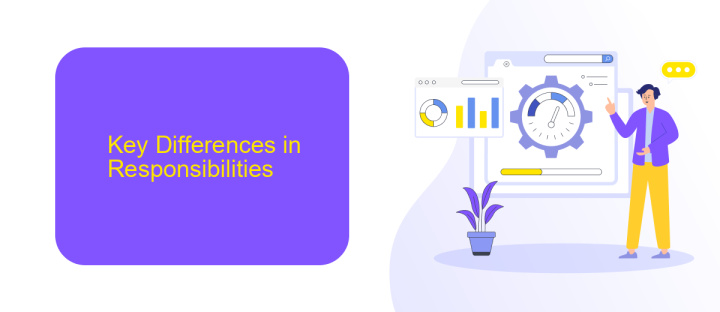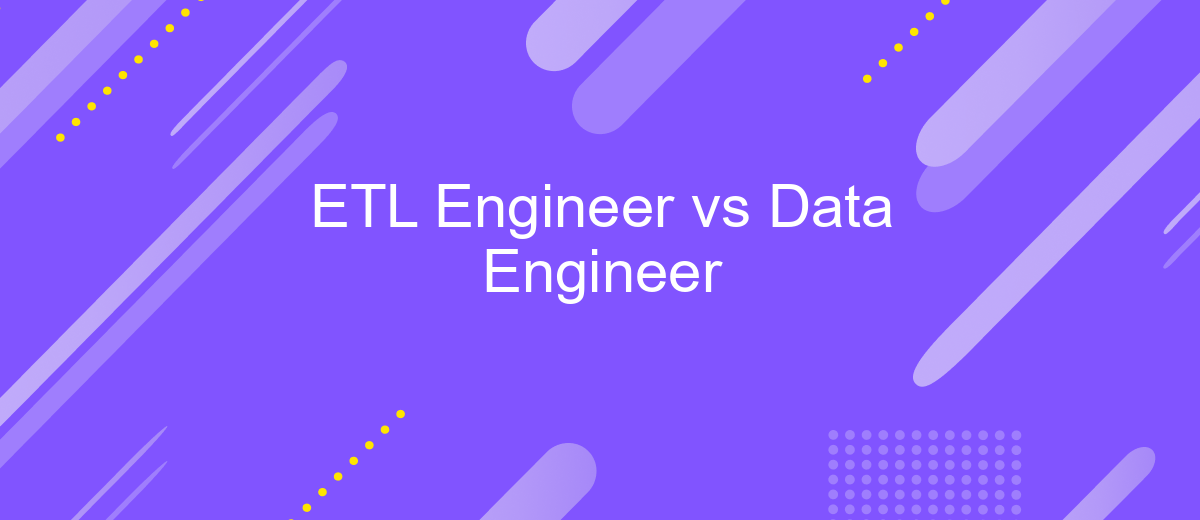ETL Engineer vs Data Engineer
In the rapidly evolving field of data management, the roles of ETL (Extract, Transform, Load) Engineer and Data Engineer are often discussed and sometimes conflated. While both positions play crucial roles in the data pipeline, they have distinct responsibilities and skill sets. This article explores the differences and overlaps between ETL Engineers and Data Engineers, helping you understand their unique contributions to data ecosystems.
ETL and Data Engineering Overview
ETL (Extract, Transform, Load) and Data Engineering are critical components in the realm of data management and analytics. ETL processes involve extracting data from various sources, transforming it into a suitable format, and loading it into a data warehouse or other storage systems. Data Engineers, on the other hand, design, build, and maintain the infrastructure required for these processes, ensuring data is accessible and usable for analysis.
- ETL Processes: Focus on data extraction, transformation, and loading.
- Data Engineering: Involves infrastructure setup, data pipeline creation, and system optimization.
- Tools and Platforms: Utilize services like ApiX-Drive for seamless integration and automation.
While ETL Engineers concentrate on the technicalities of data processing, Data Engineers handle the broader scope of data architecture and infrastructure. Both roles are essential for ensuring that data is efficiently processed and readily available for business intelligence and analytics. Tools like ApiX-Drive facilitate the integration and automation of data workflows, making the collaboration between ETL and Data Engineers more efficient and streamlined.
Key Differences in Responsibilities

ETL Engineers primarily focus on the Extract, Transform, Load processes. They are responsible for extracting data from various sources, transforming it into a suitable format, and loading it into a data warehouse or other storage solutions. Their tasks often include writing complex SQL queries, designing data pipelines, and ensuring data quality and consistency. Additionally, ETL Engineers may use tools like ApiX-Drive to facilitate seamless data integration across different platforms, ensuring that data flows smoothly from source to destination.
Data Engineers, on the other hand, have a broader scope of responsibilities. They not only handle ETL processes but also design and manage the entire data infrastructure. This includes building and maintaining scalable data architectures, developing data models, and optimizing data storage and retrieval. Data Engineers work closely with data scientists and analysts to ensure that the data infrastructure supports advanced analytics and machine learning models. Their role often involves using a wide range of technologies and tools to ensure data is accessible, reliable, and secure.
Tools and Technologies Used

ETL Engineers and Data Engineers rely on a variety of tools and technologies to perform their tasks effectively. While both roles share some common tools, they also have specialized software tailored to their unique responsibilities.
- ETL Tools: ETL Engineers typically use tools like Apache NiFi, Talend, and Informatica for data extraction, transformation, and loading processes.
- Data Integration Platforms: Platforms like ApiX-Drive are essential for setting up seamless integrations between different data sources and applications.
- Data Storage: Both roles utilize data storage solutions such as Amazon S3, Google BigQuery, and Snowflake to store and manage large datasets.
- Data Processing: Apache Spark, Apache Flink, and Hadoop are commonly used for large-scale data processing and analytics.
- Programming Languages: Proficiency in SQL, Python, and Java is crucial for writing scripts and automating workflows.
While ETL Engineers focus more on the data pipeline and transformation processes, Data Engineers are often involved in designing and maintaining the overall data architecture. Both roles, however, require a strong understanding of database management systems and data warehousing solutions to ensure data is accurate, accessible, and secure.
Career Paths and Salary Expectations

Choosing between a career as an ETL Engineer or a Data Engineer can significantly influence your professional trajectory and salary expectations. Both roles are critical in the data ecosystem but have distinct responsibilities and skill sets.
ETL Engineers specialize in extracting, transforming, and loading data from various sources into a centralized data warehouse. They often work with tools like Apache NiFi, Talend, and Informatica. On the other hand, Data Engineers focus on building and maintaining the architecture that allows for large-scale processing and analysis of data. They utilize technologies such as Apache Hadoop, Spark, and Kafka.
- ETL Engineer: ,000 - 0,000 annually
- Data Engineer: ,000 - 0,000 annually
While ETL Engineers excel in data integration tasks, Data Engineers are more involved in the overall data pipeline and infrastructure. Services like ApiX-Drive can simplify the integration process, making it easier for ETL Engineers to connect various data sources efficiently. Ultimately, both career paths offer lucrative opportunities, with Data Engineers generally commanding higher salaries due to the broader scope of their responsibilities.


Choosing the Right Path for You
When deciding between a career as an ETL Engineer or a Data Engineer, it's crucial to evaluate your interests and skills. ETL Engineers focus on extracting, transforming, and loading data, often working with specific tools and platforms to ensure data is clean and usable. If you enjoy working with data pipelines, ensuring data quality, and have a knack for problem-solving, this path might be ideal for you. Additionally, services like ApiX-Drive can simplify integration tasks, making it easier to connect various data sources and automate workflows.
On the other hand, Data Engineers have a broader scope, involving the design and maintenance of entire data architectures. This role requires a strong understanding of databases, data warehousing solutions, and large-scale processing systems. If you have a passion for building scalable systems and enjoy working with complex data infrastructures, then a career as a Data Engineer could be more fulfilling. Ultimately, both roles are essential in the data ecosystem, and your choice should align with your career aspirations and technical strengths.
FAQ
What is the primary difference between an ETL Engineer and a Data Engineer?
Which role is more involved in data pipeline automation?
Do ETL Engineers and Data Engineers use the same tools?
Can ApiX-Drive be used by both ETL Engineers and Data Engineers for automation?
Which role requires more programming skills?
Strive to take your business to the next level, achieve your goals faster and more efficiently? Apix-Drive is your reliable assistant for these tasks. An online service and application connector will help you automate key business processes and get rid of the routine. You and your employees will free up time for important core tasks. Try Apix-Drive features for free to see the effectiveness of the online connector for yourself.

